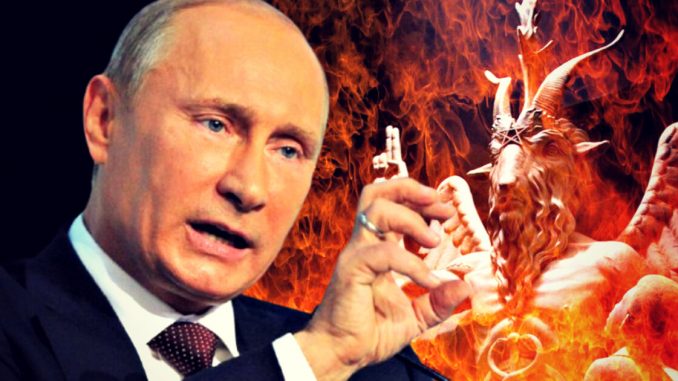
Published September 21, 2025
Russia has officially designated the “International Satanism Movement” as an extremist organization, adding it to a financial blacklist that enables the government to freeze the assets of alleged members. This move aligns with previous actions against groups such as the “international LGBT movement” and the “anti-Russian separatist movement.”
The Russian Supreme Court declared the movement extremist in July, citing accusations of desecrating Orthodox Christian churches and spreading hatred. Authorities now classify Satanism as a dangerous ideology that justifies evil and aims to dismantle traditional values. Patriarch Kirill, head of the Russian Orthodox Church, has supported the ban, accusing Satanists of conducting malign rituals and recruiting young people.
Critics argue that such vague definitions under Russian law allow prosecutors to accuse anyone of being a member, potentially giving the government a free hand to pursue political opponents.
Russia has officially banned Satanism, declaring the International Satanist Movement an extremist organization.
Authorities now classify Satanism as a dangerous ideology that justifies evil and aims to dismantle traditional values.
Vladimir Putin once claimed the West is… pic.twitter.com/rZ5yvvbrKg
— Shadow of Ezra (@ShadowofEzra) July 23, 2025
 Implications of Russia adding the International Satanism Movement to its financial blacklist:
Implications of Russia adding the International Satanism Movement to its financial blacklist:
-
Legal and Financial Consequences for Members
-
Any individual or organization associated with the movement could have their assets frozen.
-
Membership could be criminalized under Russia’s “extremism” laws, leading to fines or imprisonment.
-
-
Suppression of Religious and Ideological Freedom
-
The move signals a tightening of control over non-traditional religious groups.
-
It sets a precedent that other minority spiritual movements could also be targeted.
-
-
Political and Social Control
-
The designation can be used to suppress dissent indirectly, as vague extremism definitions allow authorities to label opponents as extremists.
-
Strengthens the influence of the Russian Orthodox Church in state affairs.
-
-
International Repercussions
-
Could affect foreigners or international organizations connected to Satanism, as their financial operations may be restricted in Russia.
-
May attract criticism from human rights groups for infringing on freedom of religion.
-
-
Cultural Messaging
-
Sends a strong signal to Russian society that “non-traditional” beliefs are dangerous.
-
Reinforces a narrative that aligns moral authority with state-sanctioned religion.
-
 Overall Takeaway:
Overall Takeaway:
Russia’s blacklisting of the International Satanism Movement underscores the government’s ongoing effort to control ideological and religious expression. By labeling the movement as extremist, authorities not only criminalize its activities but also send a clear message about the boundaries of acceptable belief in Russian society. The move reflects a broader pattern of intertwining state power with Orthodox Christian values, while critics warn it opens the door to political abuse and further restrictions on individual freedoms. Ultimately, this action highlights the delicate balance between security, morality, and human rights in Russia’s modern landscape.
SOURCES: THE GATEWAY PUNDIT – Russia Includes the Banned ‘International Satanism Movement’ in Financial Blacklist, Vows To Freeze Assets of Members
NDTV World – Russia To Seize Assets Of International ‘Satanists’
MATHRUBHUMI – Russia declares ‘international Satanism movement’ extremist, adds to financial blacklist
BARRON’S – Russia To Seize Assets Of International ‘Satanists’





Be the first to comment